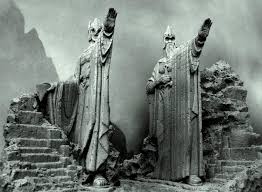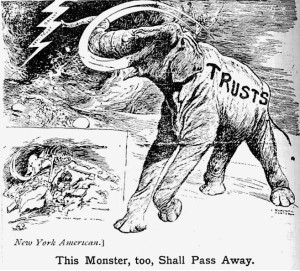A temporary-injunction order about confidentiality obligations failed for lack of specificity in Wimbrey v. WorldVentures: “Paragraph 3 merely includes a list of items that the court found the covenants were intended to protect. By failing to define, explain, or otherwise describe what constitutes WorldVentures’s ‘confidential information,’ the order leaves appellants to speculate about what particular information or item would constitute ‘confidential information’ and thus fails to provide necessary notice as to how to conform their conduct.” The Court contrasted the order in McCaskill v. National Circuit Assembly, No. 05-17-01289-CV, 2018 WL 3154616, at *3 (Tex. App.—Dallas June 28, 2018, no pet.) (mem. op.).
Category Archives: Noncompetes
 The Fifth Court gives some highly practical guidance about the enforcement of noncompetition agreements in Gehrke v. Merritt Hawkins & Assocs.
The Fifth Court gives some highly practical guidance about the enforcement of noncompetition agreements in Gehrke v. Merritt Hawkins & Assocs.
As to the scope of activity, the Court reminded: “Covenants not to compete prohibiting solicitation of clients with whom a former salesman had no dealings are unreasonable and unenforceable. . . . . However, when an employer seeks to protect its confidential business information in addition to its customer relations, broad non-solicitation restrictions are reasonable.” Here, “the record demonstrates [Defendant] was much more than a mere salesman–he was an executive and vice president with intimate knowledge of MHA’s confidential business information and trade secrets who also supervised other salesmen.”
As to geographic scope, the Court concluded that “the trial court abused its discretion by misapplying the law to the facts in failing to enforce a geographic restriction for all states where Gehrke had worked during his final year at MHA, including the entirety of the Contested States. Additionally, we conclude the trial court abused its discretion by imposing the arbitrary ten-mile radius restriction because neither party presented evidence supporting that restriction.” No. 05-18-01160-CV (Jan. 23, 2020) (mem. op.) (citations omitted from all quotes, all emphasis added).
One Technologies (“OT”) sued Profini ty and a former OT employee for breach of a noncompetition agreement. Profinity counterclaimed for violations of the Texas antitrust statute. The jury found against OT and for Profinity; the trial judge adopted the verdict as to OT’s claims and granted JNOV on Profinity’s. The Dallas Court of Appeals affirmed, changing only the basis for resolution of the antitrust claim. Profinity LLC v. One Technologies, LP, No. 05-14-00403-CV (Dec. 17, 2015) (mem. op.)
ty and a former OT employee for breach of a noncompetition agreement. Profinity counterclaimed for violations of the Texas antitrust statute. The jury found against OT and for Profinity; the trial judge adopted the verdict as to OT’s claims and granted JNOV on Profinity’s. The Dallas Court of Appeals affirmed, changing only the basis for resolution of the antitrust claim. Profinity LLC v. One Technologies, LP, No. 05-14-00403-CV (Dec. 17, 2015) (mem. op.)
As to OT’s claim, the Court found no conclusive proof the element of damage, noting that Profinity’s damages expert had squarely clashed with OT’s expert at trial. As to the antitrust claims, the Court expressed considerable skepticism about Profinity’s damages model, which calculated the value of lost customers nationwide. Under Coca-Cola Co. v. Harmar Bottling Co., 218 S.W.3d 671 (Tex. 2006), because “remedying extraterritorial injury . . . would provide no benefit to consumers ‘in state,'” even allegations of anticompetitive conduct in Texas toward a company based in Texas are likely not actionable under the Texas statute. The Court did not rule on this basis, however, instead finding a lack of jurisdiction under the Noerr-Pennington doctrine, as the alleged anticompetitive conduct focused on “conduct ‘incidental’ to the prosecution of a lawsuit respecting [antitrust] redress.” (citing Noell v. City of Carrollton, 431 S.W.3d 682, 708 (Tex. App.–Dallas 2014, pet. denied).